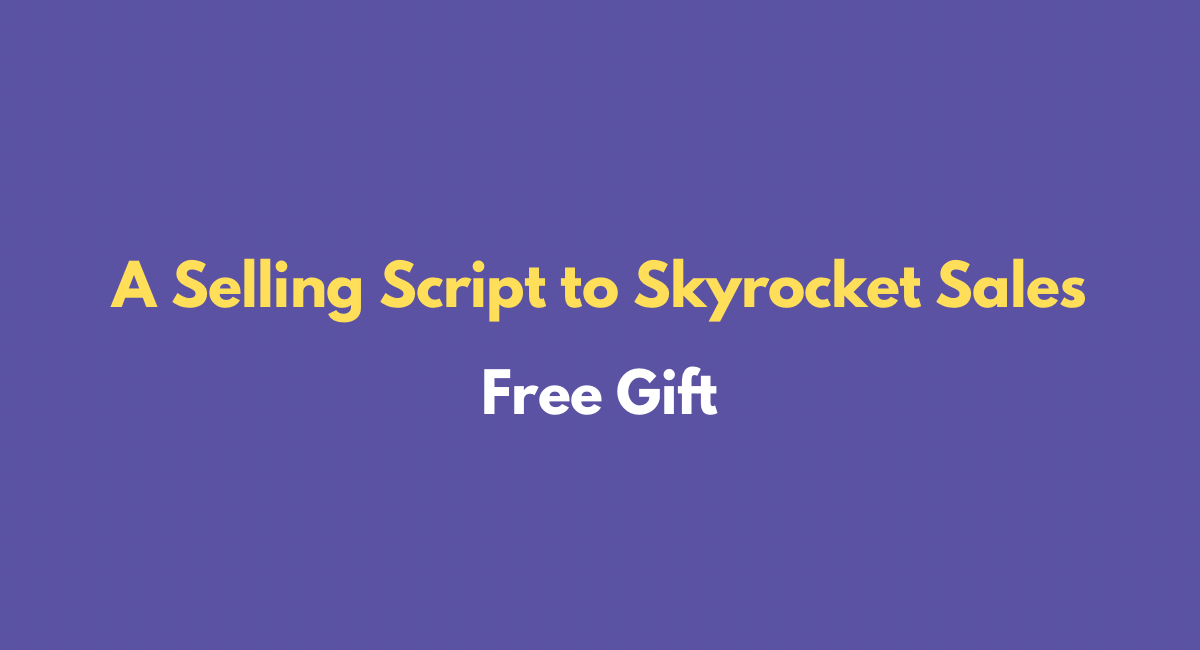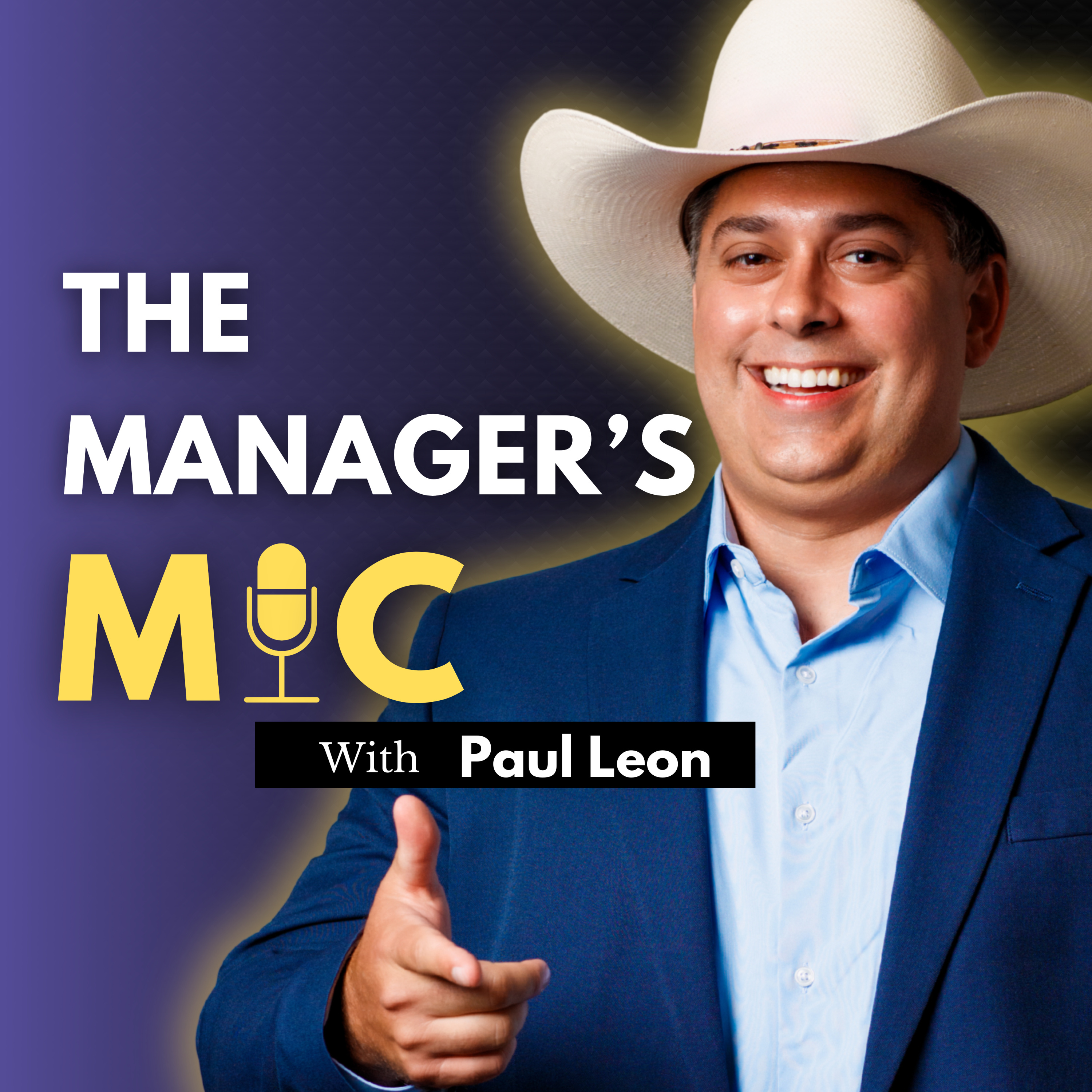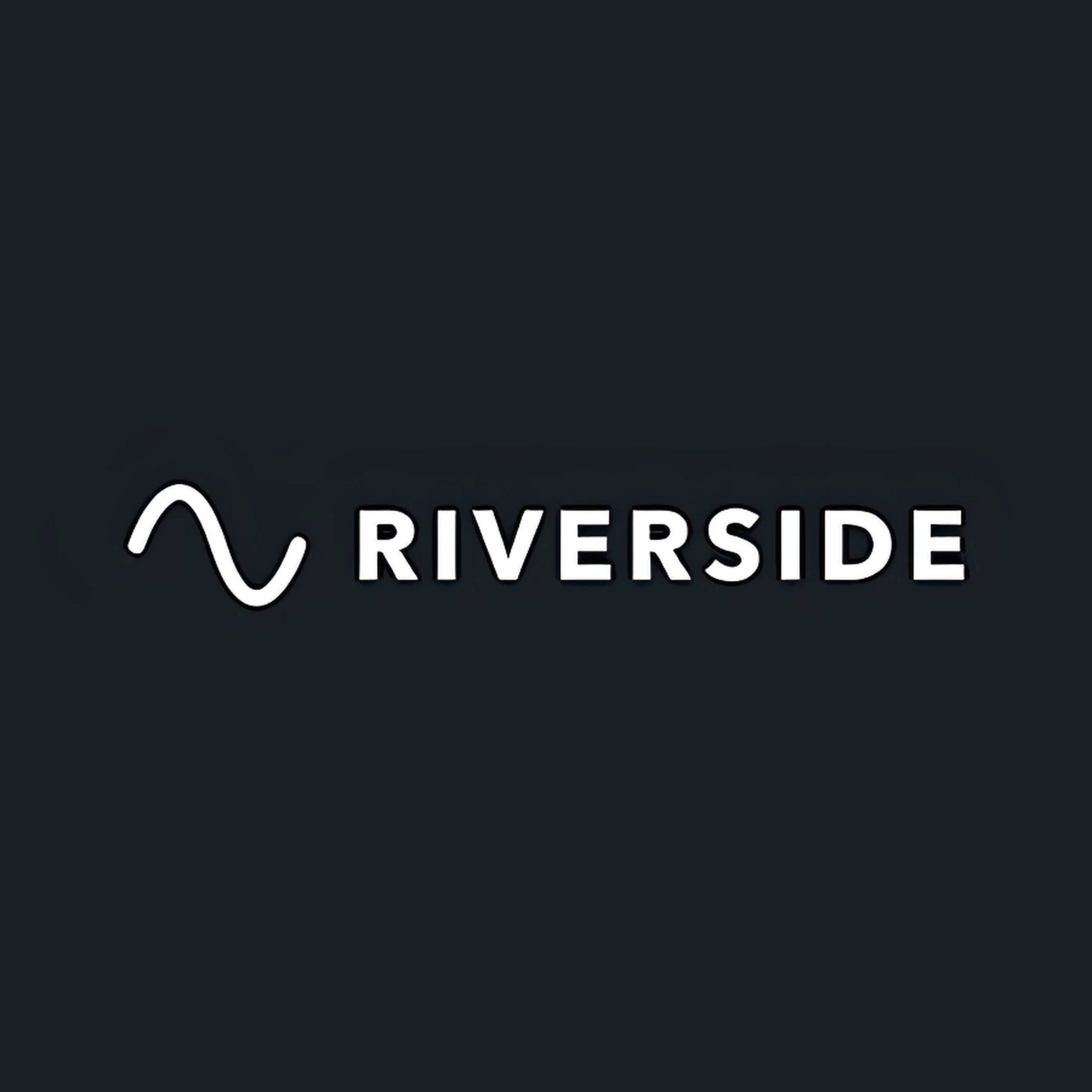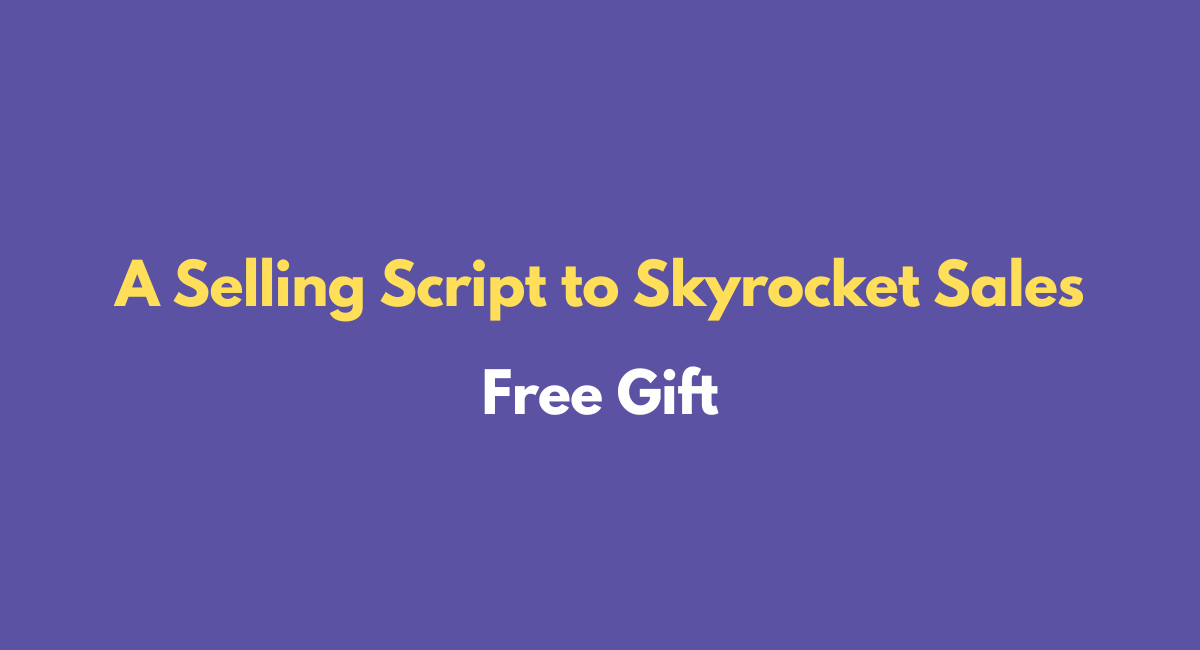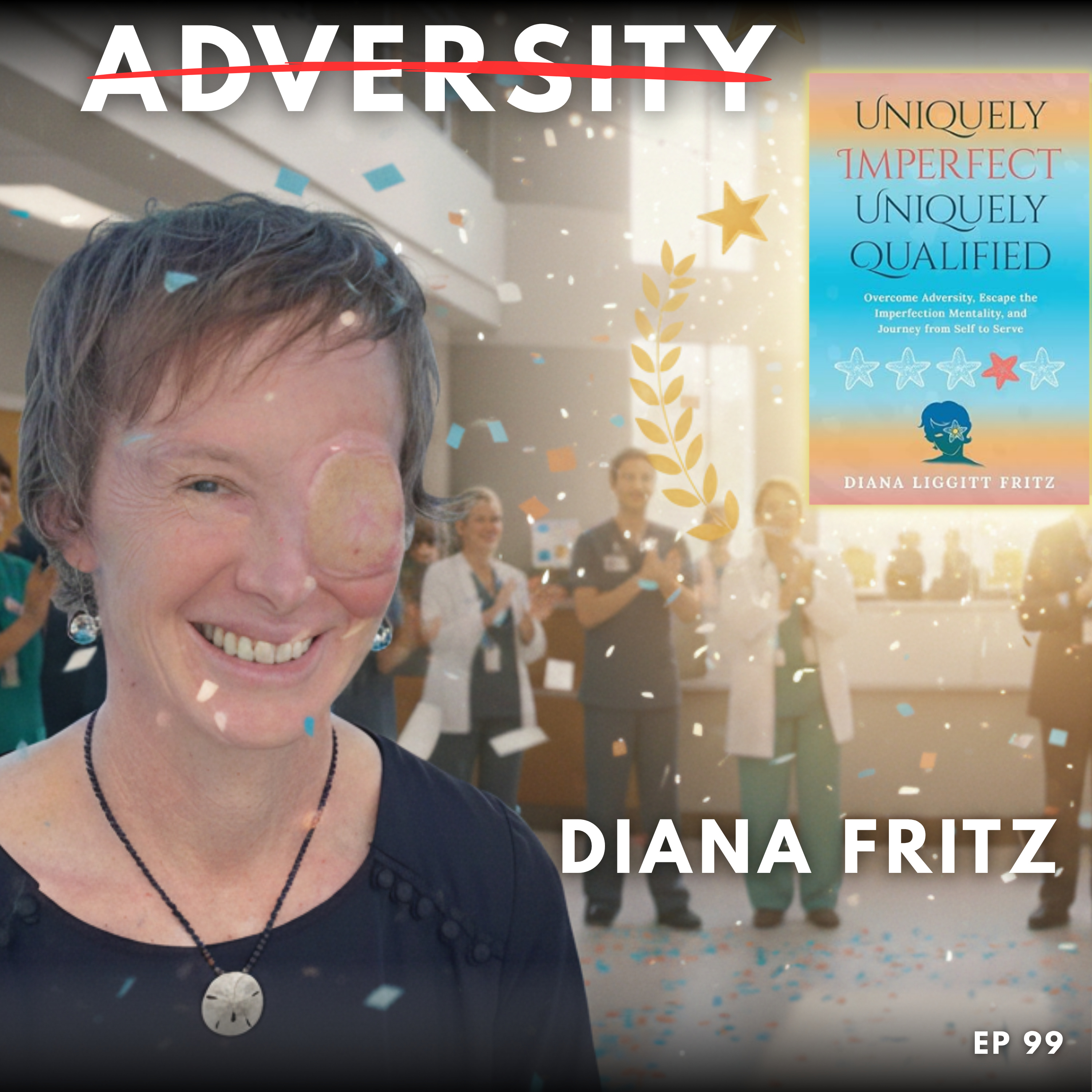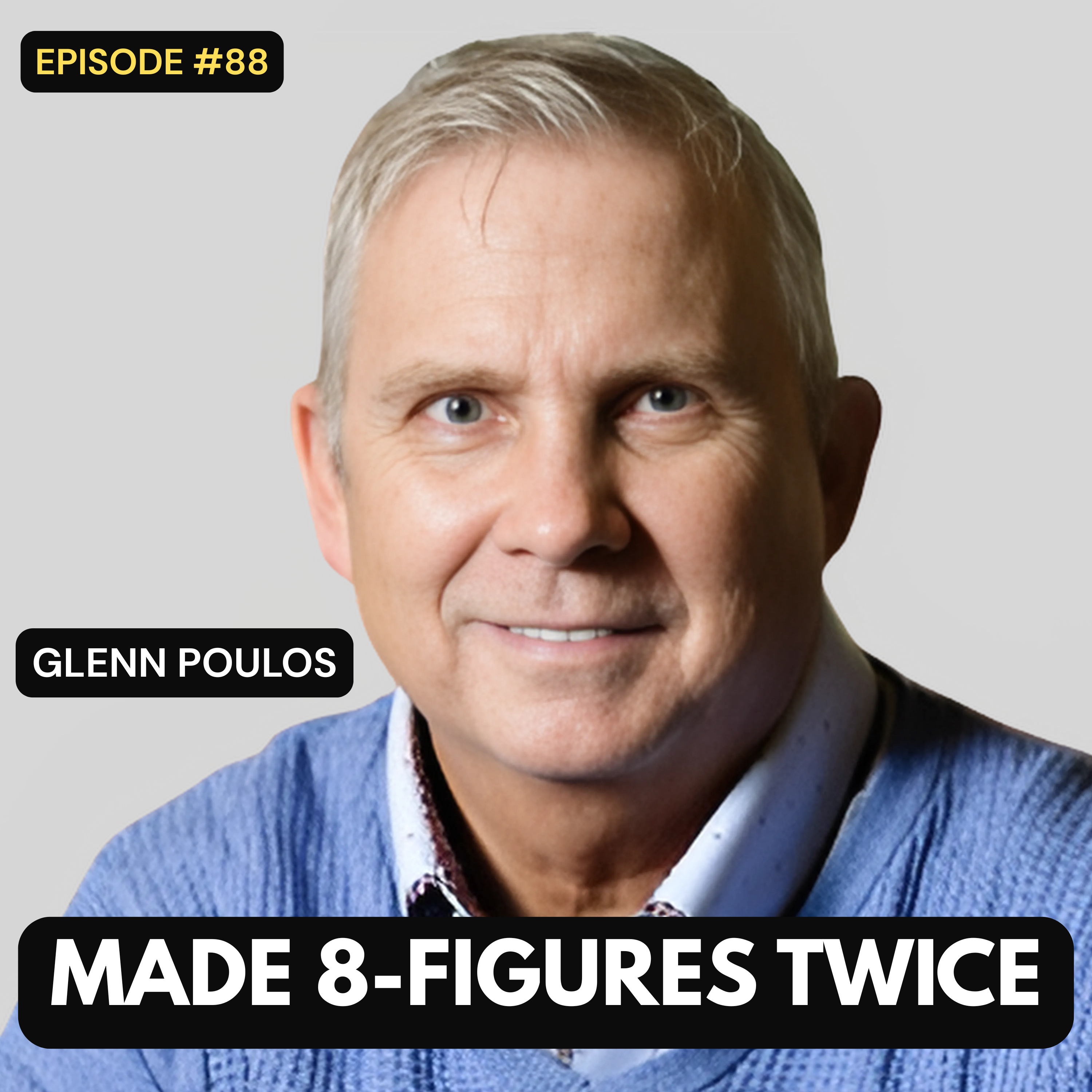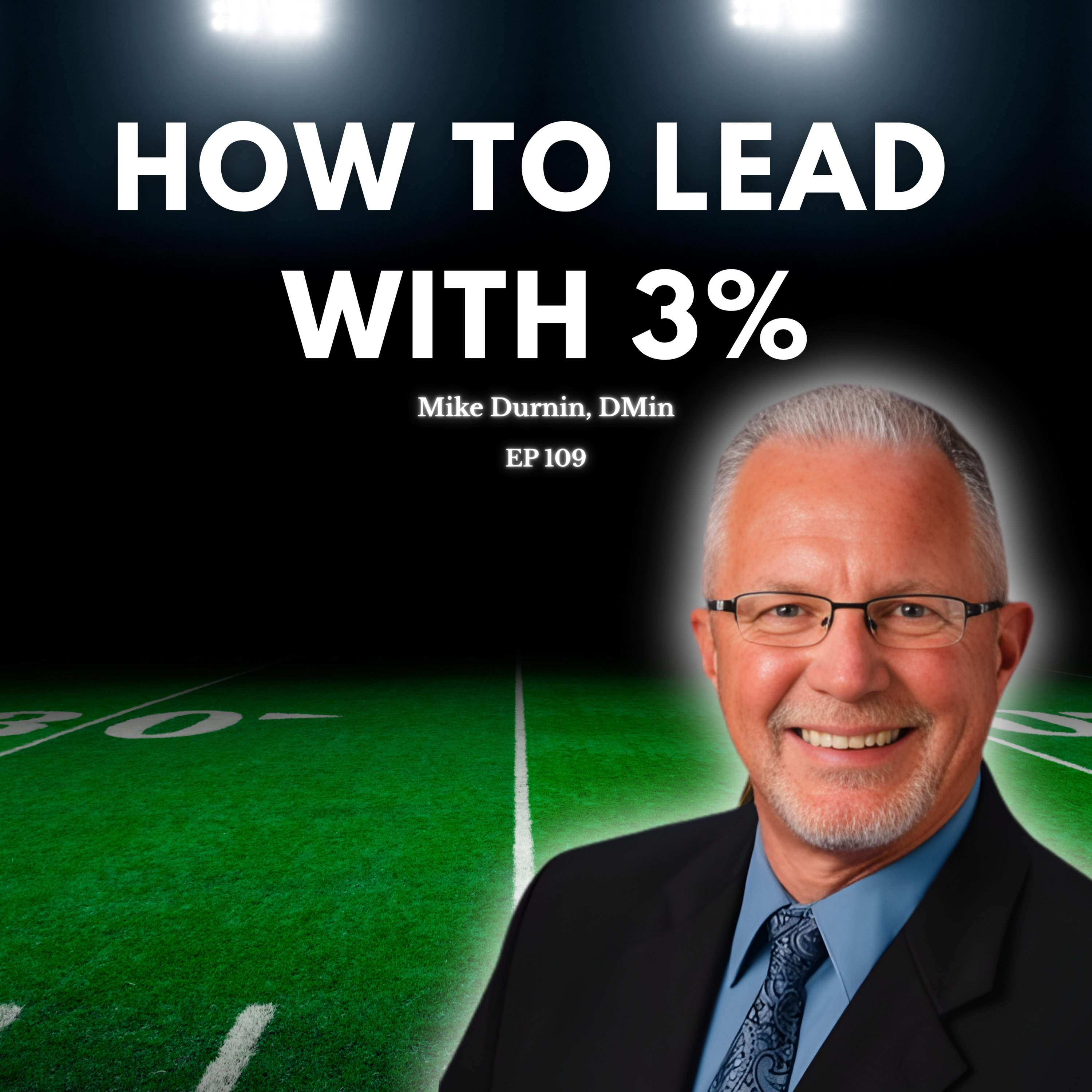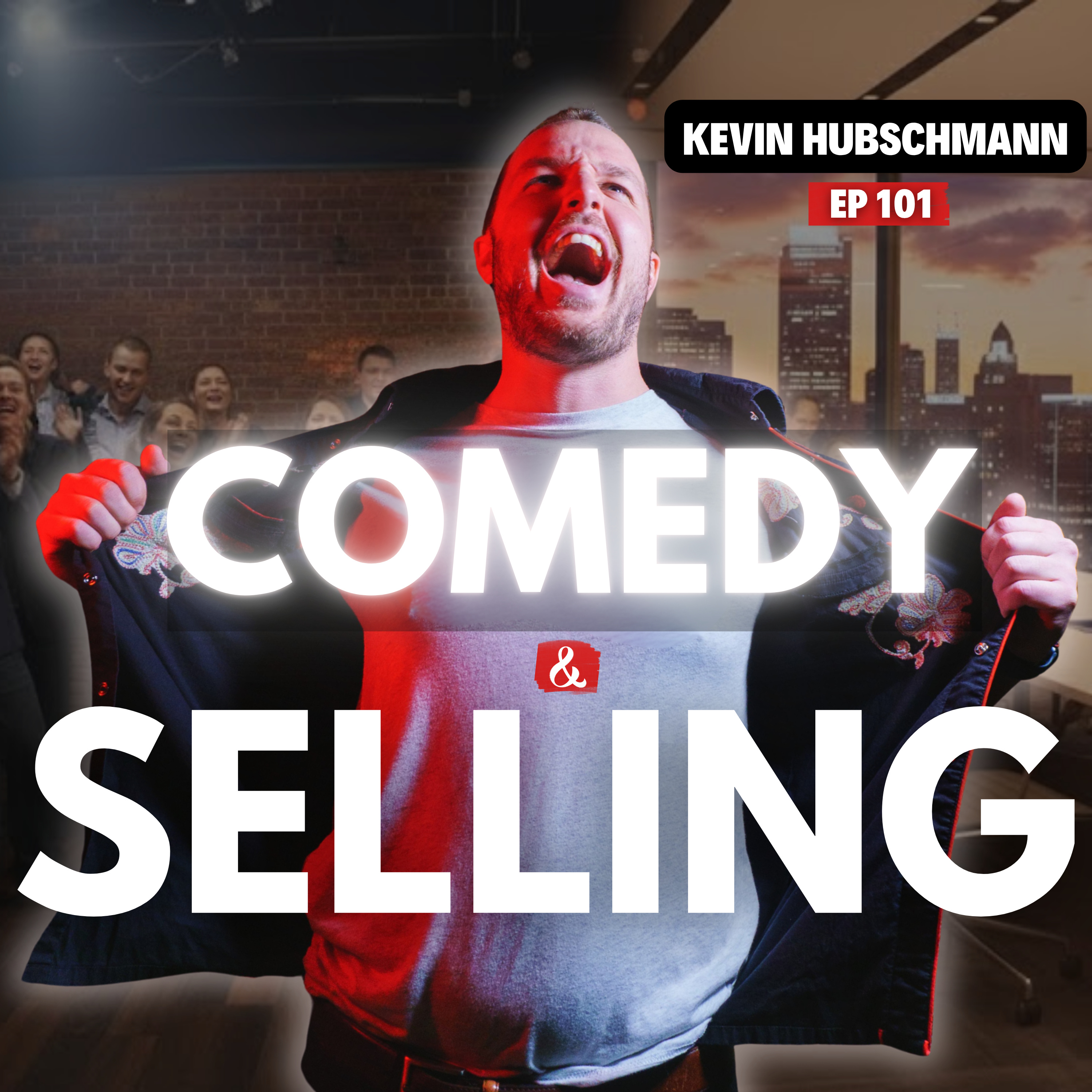
Can comedy make you a better sales professional? On The Manager’s Mic, Paul Leon interviews comedian and entrepreneur Kevin Hubschmann (Laugh.Events) on how improv and stand-up techniques sharpen sales listening, discovery calls, objection handling, and concise messaging, thereby raising close rates in both virtual and in-person meetings. Learn practical moves for sales reps and managers.
Follow Kevin Hubschmann
Takeaways
- Comedy can enhance sales skills and effectiveness.
- Listening is crucial for successful sales interactions.
- Using humor can create a connection with clients.
- Improv training helps develop adaptability and presence.
- Pausing during conversations can create engagement.
- Building rapport is essential in sales calls.
- Mentorship plays a vital role in professional growth.
- Failure in comedy can lead to valuable lessons.
- Visual aids can enhance virtual presentations.
- Laughter can improve workplace morale and productivity.
Sound Bites
"Pausing is a choice."
"Comedy allows me to give back."
"Laughter is the best medicine."
Chapters
00:00 Intro
02:07 Why comedy skills matter in sales
06:19 How improv helps discovery and listening
08:53 Rapport
17:46 Compounding wins
21:18 Tighter pitches
23:12 Mentors and modeling excellence
26:43 Virtual comedy & the power of…
29:39 How to hold attention virtually
32:03 Best bombing story (and lesson)
38:57 How to work with Laugh.Events
Paul Leon (00:00)
Welcome back to the manager's mic. I have with me today, Kevin Hubschman, who's a
comedian and entrepreneur. And what he does is pretty super awesome. He does business. He's a business professional who founded laugh dot Inc, which is home to laugh events. And if you're somebody in the corporate world where you're looking to blend comedy improv skills, which is very hard to do, I can, and him and I were talking offline before I hit record about.
I did comedy. We had some professional relationships organically, a serendipitous moment, but the skill of using comedy in the workplace is something that I think if you're a sales professional or sales manager, you can infuse because Jeffrey Gitomer says you can make them laugh. You can make them buy. But what is also furthermore, he has experience in behavioral science to help professionals build creativity, confidence, and connection through the workplace as well.
Through hundreds of live and virtual events, Kevin demonstrates professional clean comedy skills. And in comedy, the skill of listening as a part of it, adaptability and presence is really a key thing of how you can level up and power up those professional superpowers. And I'm looking forward to this, Kevin. It's been looking forward to it for a while. So is there anything you wanted to add?
to that intro I just gave you before we jump into the heart of the conversation and topic today.
Kevin Hubschmann (01:28)
No, you nailed it. I mean, I love talking to people like yourself who have dipped their toes into the comedy world, love to do comedy themselves, and have also carved out an awesome business and professional path. And I think it's really great to have that conversation because I think that both of those things can be done, in parallel. And in fact, they're best done in parallel because you don't have to
put all your eggs in the basket of comedy. You can actually use comedy as an alternative training method to make yourself better in the business world. I always look at it as like, it's another different way of going to the business gym.
Paul Leon (02:07)
I like the business gym So our topic is how to leverage comedy skills in the sales world. And I know we were just getting to know each other.
offline, we aligned on this topic. And I'm just curious, Kevin, since you seemed pretty passionate about it, why this topic? And why do you feel based on your background, maybe you can speak to some key experiences you've had, and so how somebody who might be a new or seasoned sales professional working for the sales manager can leverage the skill of comedy in the sales world.
Kevin Hubschmann (02:41)
I'll take it back to, my, my origin story, but I started at this company splash. I was, I was the first salesperson at splash. flash forward nine years later, splash ended up getting sold to see Cvent and that was an, that was an awesome kind of end to that chapter for me. started as a salesperson, not knowing anything.
Paul Leon (02:55)
really?
Kevin Hubschmann (03:02)
You know, that was the beauty of starting so early. we can't screw this up because this guy's not carrying a big, part of our P and L. let's just, let's just let them rip. while I was doing sales and trying to figure out my sales skills, I would go and do improv comedy at night. I would, I would, me and my two brothers and my best friend, we started an improv group called the brothers and flaws. And we'd go to my brother's apartment and we'd move.
all the furniture out of the way. And we would be in this what felt like a 10 by 10 max square. And we would do improv with a private instructor for three hours a week for about a year. And it was so much fun. The amount of joy that came, we went into that almost every day being like, man, should we reschedule? I'm really tired.
Paul Leon (03:41)
wow.
Kevin Hubschmann (03:52)
And then we'd leave it being like, can't go to sleep. That was insane. That was super fun. We're we laughed so hard. and so that's what I thought I was going to get out of it, just like that joy of it and just that bonding and really enjoying it. But then the impact that I truly saw was the next day, the next day I would go into work and suddenly my sales skills were heightened. as someone that was, Hey, I'm a
I'm pitching, I'm a salesperson. I got to pitch my product to people. I suddenly would think back, okay, in improv, one of the most important things is don't interrupt. And there's even something my teacher told me at some point, my instructor, said, F your good idea. And it was this idea that Hey, you might have something on your mind, but give it a beat because there's somebody else talking right now. And you do not want to just hold on to that idea and drown out what could be even a better idea.
from you actively listening. So I would take little nuggets like that and I would apply it into the next sales call that I had. And I would say, okay, let me stop talking. Let me think, let me listen to this person. And the more that I listened, I saw my call, my talk time go down and the other, and the client's talk time go up. And I saw my deal volume increase. More importantly, I saw my closed one volume increase.
And that was one of the first instances where I was okay, these comedy skills that I'm learning, although I'm hey, this is just fun and I'm having the time of my life. This is actually leveling me up professionally. And I'm going to be able to use these skills to make more money. I'm going to be able to use these skills to close more deals. And I'm going to just be able to sharpen my sales craft by, working out my, soft skills, so to speak.
working those out in these improv training facilities.
Paul Leon (05:40)
I love that. When I was before I decided to put the mic on hold for standup comedy, one of the things I always tell people is I always have a huge reference for improv. for people who understand this reference, I know that's where Chris Farley started off, there's a lot of great comedic presence that started off an improv. I'm curious because you said the skills and things you were learning in improv.
Kevin Hubschmann (05:58)
yeah.
Paul Leon (06:06)
we're translating to the phone. Is there any specific call you had that you can think of top of mind? I'm putting you on the spot here. And just so everybody knows, we have no notes. We're, this is true improv ⁓ right now. Yeah. Hit me.
Kevin Hubschmann (06:19)
And yes, I got something for you. I think,
what I will say, you know, there was a client and this was really early on where I was okay, I got my pitch down. And that's also when you think about Stan, I'll get into this later, but when I started moving away after I did improv, I started getting more into standup. and that's, and that was when I started to leverage that.
learning into my pitch and using my pitch into the smallest amount of words. But, in terms of going back to the improv world, I remember there was one client specifically where I was ready to pitch. had my script ready, think back in the day it was like design data scale. And I just was like, those words were, were what I was hanging on. And I was just I'm ready. I'm in the corner ready to jump into the ring and.
Paul Leon (07:00)
Hmm.
Kevin Hubschmann (07:08)
It was that moment where I was with the client and they're like, tell me about your product. And normally I would have just jumped right into it, but instead I flipped it on them. And I said, actually, I would love to just listen for a second. I would love for you to tell me, what's your biggest problem that you're facing right now. And it was just that heightened curiosity that allowed me to suddenly let
them weave into those three topics I was already going to be talking about because they were like, my event website pages stink. We have no data anywhere. And the biggest problem is that we're all over the place with field managers and we can't, we can't get people, they're all doing their own different thing. by me saying nothing, they fed into what I was already going to be talking about. And it was this really cool opportunity where I was Whoa.
I did nothing except be curious and listen and the problems were laid out in front of me. And I was already, what I was already going to pitch them is going to solve this perfectly. by me doing that, I was able to really listen to their pain points effectively. And that was my biggest takeaway. put the pitch on hold for a second, wait for it. Give the client an opportunity because if you just go and say,
this, this, this, and this, you're no different than any other salesperson, because you're just pitching to them. And when you start to add that human element of empathy, of validating their problems, saying that's a very common thing that we see, ⁓ it was all of these different components that I was learning from the stage and into the sales world that really allowed the client to build trust with me. And so now when it was my turn to talk, they were really listening.
Paul Leon (08:40)
Hmm.
Kevin Hubschmann (08:53)
and not multitasking or doing other stuff, which is really easy to do when you're doing demos and whatnot. So that was definitely my biggest like aha moment where it was just shut up and let them rip.
Paul Leon (09:00)
Right.
You mentioned you said, if I heard you correctly, it was that's a common challenge. learn certain key statements to say that transitioned from the skill of improv, the skill of comedy to your consultations in the sales world. And in fact, I, I can totally align with you on that from some experiences, but I'm curious about what were some key statements other than, Hey, that's a common problem.
Did you have any other key statements that you're like where you're part of your vernacular? I don't think people should be put in a box. I think it's good to have a script, but any ways that you communicate value or transition statements that speak to your style to achieve those results and closing rates that somebody can listen and go, Hey, that's a, that's a way I've never heard that before. Let me try that. Anything there that we could peel that onion around.
Kevin Hubschmann (09:58)
Yeah. And this actually is something that I learned from a manager myself when he was listening to my call. He jumped in and listened to something I was doing. And he, he was someone I would grab beers with after work and he would know who I was. And, he just felt like I was jumping in to the call so fast and I wasn't building a lot of rapport. And so he said something to me. was like, how'd you think the call went? And he said, and he said to me,
It was very very Epic and he turned to me in his chair and he was like, stop being so salesman and start being more Hubschman. thank God those names rhyme. Cause I'll remember him forever. So that was the first time where I was okay, I need to be really conscious of who I am on these calls. Am I really making a genuine?
Attempt to make a connection with people. Am I starting my calls out by going? How's the weather over there? am I starting or am I kind of genuinely asking them? How are things going? building that rapport at the top of the call and then using that sales or that improv and and stand-up skill of Using that information I gathered in the beginning as a call back at the end of the call what can I learn at the beginning from a personal standpoint?
that I can maybe write down and be like, remember to mention good luck at your kid's soccer game or good luck at the Halloween costume contest this week. I hope your dog wins, whatever it might be. how can you make that connection with them at the top? Because as you even saw it now going into the world of standup, really important thing outside of your opener is
Paul Leon (11:24)
Yeah.
Kevin Hubschmann (11:36)
you want to call out something that can make you have a connection with the audience within the first minute, maybe even the first 15 seconds. hey, isn't this room crazy? Or hey, that comic before me said something, you you'll notice that if you start to see comics, the audience will, saying your listeners, you'll notice that that's how most of them start. They're noticing something so that the audience is yes, you know who we are. And they listen in closer.
Paul Leon (11:43)
Yeah.
Kevin Hubschmann (12:03)
⁓ and then, know, that gives you the opportunity to, okay, now they trust you and now that they trust you, they're going to listen to everything else that you have to say. So that's definitely like another thing that rings in my head all the time. Stop being so salesman, start being more Hubschman. and everyone can use that, with their own, their own last name.
Paul Leon (12:03)
Yeah.
Yeah.
Everyone's going to be hubshwin after this. remember, I remember there was a good comedian that I learned from and maybe this name rings with you. Eric Meyer was his name. Good guy.
Kevin Hubschmann (12:24)
Yeah.
Okay.
Paul Leon (12:34)
look on my BAFTA. One of the things I picked up from him in the comedic world, in that circle where I was doing it heavily in Orlando was if ever you're nervous, this was a tip he gave me and I still use this to this day, poke fun at yourself within the first 10 seconds. That was like a, a, I guess a comedy hack he would say. I would get up and be like, Hey, you guys doing? I'm Steve Carell, fresh out of jail. So I'm like, you know, like see you laughing and see it still works.
Kevin Hubschmann (12:49)
Mm-hmm.
Mm-hmm.
Yeah.
Paul Leon (13:01)
So I'm curious though, it's hard though, because in some environments, and one thing I'm going to take my hat off to you, Kevin, is the fact that you're able to listen. I think some of the stigma I have heard from other sales managers is a comedian is somebody who talks too much while in sales it's about talking less.
Kevin Hubschmann (13:22)
Mm-hmm.
Paul Leon (13:23)
And I'm curious if you're some of your behaviors traits, do you tend to be more extrovert where you feel you want to be the center stage person and that's a struggle for you? talk to me about you a little more are you more extrovert? Are you actually more introvert? And what are those struggles that you've had to reframe during that journey?
Kevin Hubschmann (13:42)
my friends who I've like hit dance circles in the middle of it and I'm ripping it up on the dance floor. They're like, this guy's an extrovert. ⁓ But if you were to ask my wife, who knows me better than anyone, like I am more on that introverted side and I am not someone that I'm always ready to take the stage, but I'm not someone that's dying to take the stage. And I think that that is the key difference.
Paul Leon (13:49)
Ha ha ha!
Kevin Hubschmann (14:05)
And, I don't want to just perform to get the attention. Any sort of performance that I'm doing is to make a genuine connection with people, whether that's through laughter or smile. It's not through Hey, I'm, I'm getting something really out of it. obviously I am, but it really is. I'm only getting something out of it. If people in the audience enjoyed it, it's not that I'm get, cause I think once you've performed enough times, at least me, you don't.
need the novelty anymore of performance. it's kind of like why people love karaoke. I think if people love karaoke, they should do standup. I like karaoke a little bit less now that I've done so much standup and live performance because that is my outlet to do it. And I think that if I have that outlet, it's allowed me to be more comfortable to take the stage when the time is necessary.
but it doesn't make me feel like, okay, I have to take the stage because I have this thing inside of me that needs to come out. no, if I can add value to the experience by taking the stage or taking the mic, then yeah, put me up there and I'll go up there with a lot of confidence. when it comes to standup, the biggest thing is standup's a magic trick. A lot of people think standups wanna go up there and just
Paul Leon (15:18)
Yeah.
Kevin Hubschmann (15:21)
say what's on the top of their mind, that rarely happens. everyone goes up with a plan. And so that's another component is they make it seem so effortless and easy because they've got the reps so that it is very organic and it feels very natural. And it feels like, man, they can really take the mic. And sure, there's great people that are amazing at crowd work. They really can work the room.
Paul Leon (15:35)
Yeah.
Kevin Hubschmann (15:46)
and talk off the top of their head and write on stage. But what I've also noticed is that most people that write on stage, have an opener or they have a closer and maybe they're writing in the middle. everybody comes up there with a plan and that's kind of the person that I try to be is like, I have a plan. I don't feel the need to just get that out of my system because I've gotten that enough.
And so in that sense, I am introverted in that sense, but I can become extroverted. And I can become extroverted. I always like to say, if being an extrovert means that you'll go and sit at a bar and you can talk to anybody, I'm not an extrovert. I hate that. That's my worst nightmare. But if being an extrovert means that I can grab the mic or I'm not afraid of any moment, then sure.
that makes me an extrovert, but I think I have this combination of I don't need the attention, but I'm willing to take the attention.
Paul Leon (16:46)
one of the best shows I ever did improv wise I remember it was sax comedy you would do a set and then improv I don't know if improv people's an offensive term I don't know I hope it's not yeah they would act out your jokes it was such a neat
Kevin Hubschmann (16:57)
You just mean like work the crowd. ⁓
interesting.
Paul Leon (17:03)
experience. I love stuff like that. You should check out if you ever come to Ohio, hashtags or your comedy club, some something to put on your notes. If somebody is new, let's say I'm new to comedy, and then I and, and we'll have some value driven parts of this conversation here about and I think some of this will connect easily to sales. I'm new to comedy. I've never done comedy. I
Kevin Hubschmann (17:24)
Mm-hmm.
Paul Leon (17:28)
I've never wrote a punchline. I've never done improv. What are three to five things you'll say to a new person that will take it from somebody learning comedy that these three to five things can also translate into the sales world. Is that a question you're comfortable going down? It's very specific. You're an extra extrovert right now, right?
Kevin Hubschmann (17:46)
I'm comfortable with any question you got for me. love them. I am in my, okay, let's do this. So
three to five, I'll start with one and you keep track of my numbers. So number one, I would say
Paul Leon (17:59)
Do my best.
Kevin Hubschmann (18:02)
reps, think when it comes to, wrote this, if I do say so myself, this great newsletter article on my own newsletter, laugh RX, nice little shout out, laugh RX. We, we, it's called, yeah, put some rep, put some pep in your rep. And the idea is get comfortable with the idea of doing reps and bombing, I think as someone who's done stand up a lot.
Paul Leon (18:18)
Hmm.
Kevin Hubschmann (18:27)
you have way more stories of bombing than of succeeding. And if you don't have that, then you have not done comedy. And I think that's a really good, clear example. you might do great the first time and that might be that's enough for me to want to try it again. But then the next, the second, third, fourth, fifth, you might bomb like crazy. And the idea is if I bomb one, am I building up those calluses to bomb?
Can I take failure and not be in my head that I don't want to continue going with it? And so that's always what I find great about bombing and trying and doing reps is that you're building up calluses. So this is point one, part A. Building up those calluses is really, really helpful. And as it relates to the sales world, that's no different.
Paul Leon (19:13)
Bye.
Kevin Hubschmann (19:19)
Bombing is not closing a sale. Bombing is someone who's not going to hit you back. Bombing is someone that'd be like, man, I really did not do this well. But what I found best as part two of this is what those five seconds were that I was able to take from that set that I just bombed at? I would do five minutes and I'd record the set, I'd listen back to it. And I would be on stage, you're well, that was horrible. Then you listen back to it and you hear
someone let out a laugh on a word or a phrase or a tag or something that you said, maybe it a setup, maybe it was a punchline, I don't know what, but you take those five seconds and you go, all right, that's something. Let me throw out four minutes and 55, but let me take those five seconds and let me include that in the next time that I do it. And if you do that enough, five seconds turns into 10, 10 to 20, 20 to 40, 42 over a minute.
Paul Leon (19:47)
Yeah. Yep.
Right.
Yeah.
Yeah.
Kevin Hubschmann (20:12)
Now, now you got two minutes, eventually you're to get to five minutes really quick. And that's because you're compounding those small successes and you're allowing yourself to keep winning. So it's the same thing in sales. You're compounding those little wins. When you hear someone be like, you ask a question and they go, that's a good question. Boom. You keep that you keep, even if you didn't win the sale, you keep that because now that's something that you can ask.
Paul Leon (20:31)
Yeah.
Kevin Hubschmann (20:38)
And now you can ask a second question when you're taking that risk. And then you hear, okay, they liked that one. Now you're putting together your own little playbook that's straying from your, your original playbook that you were given. Now you're taking it and you're making it your own. So that's the first one, get those reps in because the reps are everything they build calluses and then the compounding success that you get from it, is, is only going to pay off. And the beauty in.
sales is that it pays off literally. You literally get money as a result of it. Jerry Seinfeld has a great quote where he says, if I didn't get into comedy, I would have gotten into advertising because advertising and comedy are very, or have the same idea, saying the most amount of things in the smallest amount of words. And so I think
Paul Leon (21:18)
Hmm.
I like
that.
Kevin Hubschmann (21:27)
With salespeople, we talked about listening is everything. So when it is your time to talk, how succinct are you being? And with standup, they call it the economy of words. How are you able to say your joke in the least amount of words to get the most amount of laughs? And I think the same exact thing applies as it relates to sales. How can you throw a word out? How can you throw out any ums, any uhs, any of those fillers? But then also, how do you throw out
Paul Leon (21:40)
Hmm.
Yeah.
Kevin Hubschmann (21:56)
other words that make it man, I'm really going around about way of getting my point across, which I've, I've been guilty of. I'm a rambler. sometimes people got to stop me. that's something I'm always trying to think is okay, did I talk too much? And if I talk too much and I already think I was listening enough, that talk time was a good, good enough and I couldn't do better. Now it's on me to tighten my stuff up.
Paul Leon (22:02)
Yeah.
Kevin Hubschmann (22:21)
whether that's one less slide or, one, less word. I think there's always a way people can get it better. And that's what standups are so great at doing. They can throw out words. They can throw out even full jokes or setups or punch lines, cause they got to get in that tight five. you get on stage. If you've got a loose 10, you got to have a tight 10. You got to have a tight five because you've got to kill it when you have those early opportunities.
So I think that that's a really important thing. And I'd say that the third thing is I've learned the most about standup through mentors. I've had the opportunity to do these corporate comedy experiences. And during the pandemic, I was able to work with some amazing comedians, Jessica Keerson, Ian Fiedance, Michael Somerville, Marcus Monroe, Joe Larson, ⁓
Paul Leon (23:11)
Yeah.
Kevin Hubschmann (23:12)
these amazing comics who are seasoned pros. And I was able to actually, because we were doing virtual corporates during the pandemic, we were doing like 10 a day. I would be able to watch them go set after set. And I got to really see how they approached every single set. having mentors is no different. When I first started as a salesperson,
I had a great manager. had a manager named Greg Higgins and I got to watch him kill it. got to watch him go in the room. My CEO was also in that room, Ben Hinman. I got to watch him kill it. And I got to take what I liked about their pitches. And then I just got to watch them and how they own the room. So I was also very, I took that same approach with comedy. And I was able to say, okay, this is what this person focuses on.
What I loved seeing was when I would watch a comic go back to back and they would take a breath. And that breath, when I first heard it, I thought it was just organic. And then I heard it in the second set and it was an on purpose breath. The breath was as important as a joke or a word. So it was that detail that I learned from just being able to watch these mentors. And also they were very generous with my time. I'd ask them questions. So.
These mentors are so critical. as a salesperson, especially as a young salesperson, but even as an older salesperson, who can you keep learning from and being in calls with you or, being on meetings with and joining, even if it's not your account, can I come to your meeting and can I sit on your meeting? I know that you're killing it right now. I'd love to take something from that.
Paul Leon (24:45)
Yeah.
Kevin Hubschmann (24:50)
I think that you never want to stop learning because that's another cool thing in standup. People be hey, when are you going to retire from standup? No one asks me that. saying that's what people ask comments. Most people say you don't retire from standup. You can never stop working on a
Paul Leon (24:51)
Yeah.
Yeah, like in general, yeah.
Paul Leon (25:06)
Hey guys, real quick. The only reason this podcast grows is because of you. when you hit that follow button or you leave us a review, it means the world to me. I did a cost analysis each episode in terms of resources cost somewhere around $2,500 and upward.
We give a lot of this professional development way for free. But what it makes the world to me is when you leave a review or you give us five stars
I will do everything in my power to make sure that the Manager's Mic podcast is exceptional and serves your professional development. Take care and back to the show.
Paul Leon (25:39)
yeah
that's the truth sorry i cut you off i was getting i was actually reminiscing on how good that statement was crafted that i went yeah not to interrupt you bad that's it you can tell i haven't done improv ⁓
Kevin Hubschmann (25:44)
You
Not.
No, that's, mean,
that was a perfect ending to it, if I do say so myself. that's how it is. can't end it and you can always want to keep growing and getting better at
Paul Leon (26:03)
you said you did 10 virtual events a day. If I heard you correctly, I am extremely curious because there's always a stigma around being effective and virtual. Would you say, I feel like my assumption is
Kevin Hubschmann (26:09)
Mm-hmm.
Paul Leon (26:22)
some of the same type of impact a punchline would have would be different over virtual. Would you go against that to say, actually, here's what we experienced during 10 virtual events, because they were so skilled, it didn't matter. I'm curious about some of your experience around doing comedy virtually. And I think that will translate also into selling skills. I'm curious about your experience there, if that's fair.
Kevin Hubschmann (26:43)
would say that in the beginning when we were doing stand up during the pandemic and it was a very new product, we're working with master comedians. These are comedians that should have been in theaters and instead they were stuck on Zoom because they legally were not allowed to work. what I would say is if you're good, you're good.
Paul Leon (26:53)
Yeah.
Kevin Hubschmann (27:06)
that does not matter if you are on zoom, you do have to adjust, you do have to adjust for the lag to know that your, your punchline might take another second. And I think that's, that's something that's important. I have to maybe take an extra second or two to pause so that I leave that room for a reaction. instead of me being crap, they didn't speak.
Paul Leon (27:13)
Yeah.
Kevin Hubschmann (27:28)
let me talk over the silence. And I think that that is lesson that I learned doing virtual comedy is pausing is a choice. And that's not just virtual, that's everything. Pausing is a choice and people get really nervous when there's silence. And I think silence is power to the person that has the mic. If you've ever noticed it on stage yourself,
Paul Leon (27:37)
⁓ I like that.
Kevin Hubschmann (27:54)
If you pause and hold a longer pause in a joke, the audience can do nothing but lean in a little bit more, they're either going to knock it out of this or they're going to set us up something nice. So pausing can create a really great amount of attention and get people to come in even more. But that pause can also be helpful for a reaction. You don't want to bulldoze and just be I have a script because I saw a lot of comedians when we were testing folks out.
to see who would be good for this format. It was the people that just went right into their next joke and didn't let it marinate a little bit more that were not as effective. And it felt like a script rather than an organic conversation that great standup can look at like. And then would say the second thing that allowed us to evolve when people maybe started to want, people started to get a little bit Zoom fatigue as you know, during that time.
we needed to find a unique way. And so we started saying, our standup product is great. We have great comedians that are performing excellent work. Are there other formats that can work well for us? And we started doing this one called Workday Update, which we still do. It's so good. And what we did is this great comedian I work with Khalid Rahman. He's performed on Conan before.
Paul Leon (29:12)
wow.
Kevin Hubschmann (29:13)
really excellent and what we did was we created it to be a little bit more visual. we started to add visuals to it. if we're doing a 30 minute show, 15 minutes, don't necessarily need the visuals. I think they help. Obviously any sort of visuals on Zoom help. But when we started doing a 30 minute show, 45, 60 minutes, it's hard to just listen to someone talk for that amount of time. So adding the visuals where we had GIFs,
Paul Leon (29:26)
Yeah.
Kevin Hubschmann (29:37)
adding visuals where we're using photos as punchlines, starting to customize the sets a bit more based on audience submissions was really fun. ⁓ And so we found out ways to customize it a bit more. But what I found was, all right, on Zoom or virtual or doing these presentations, it's not a crutch to have a visual aid.
Paul Leon (29:39)
Hmm.
really? That's cool.
Kevin Hubschmann (30:02)
People need it. People need it on these zoom calls and it really helps keep the attention. And so I think that that was another component that I think is effective for your sales team. their sales listeners talking is good, but if people are on, unless they're on their phone, on the road, they want to see something. If you want to keep their attention. and I think that that is a really effective thing to even just have two slides, three slides. Doesn't have to be 10 slides. Don't don't.
Paul Leon (30:05)
Yeah, they do.
That's true.
Yeah.
Kevin Hubschmann (30:31)
don't
drown them in info, but what's something that you can at least speak to and something that people can look as a visual aid or logos that you've worked with in the past or, stacks, tech stacks. I don't know what people are selling, whatever it might be, but just stuff that basically says hey, we're speaking your language. And as I talk, this is something that you can look at. So I think visual cues,
was something that we learned was also very effective.
Paul Leon (30:56)
Was it memes or just funny images you'd speak to in a curiosity? ⁓
Kevin Hubschmann (31:01)
It's
a mix. mean, the memes, yes, and a lot of the memes are submitted by attendees, which is even better. people love that. We do a segment called, what does this meme? But the other ones were gifts. we have a segment called raise your hand if, raise your hand if, you have trouble controlling your kids when you're working from home. And then it would show like a GIF of
Paul Leon (31:07)
That's a good idea.
Kevin Hubschmann (31:21)
kids going absolutely crazy with their parents, climbing up a refrigerator or something. And you're connecting with people, I have that experience. But then they're also really getting the punchline because you're visualizing it for them. And it's a very fun cue that people can be like, I got what he was saying originally, but now I really get it because they're hammering home with an image.
Paul Leon (31:24)
Yeah.
Hmm. No, I love that. I'm curious. We've talked a lot about comedy. We've talked a lot about bombing. I feel if I don't ask you this question, I'm going to regret it. You got to share with me your best.
bombing story. There's nothing in my opinion. There's nothing like a great bombing story. And if you don't want to share it, that's fine. I just got it like I have one I'm happy to share we could talk about offline but I want you to be the star. I feel like if I don't ask, I'm gonna regret it. What's your best bombing story?
Kevin Hubschmann (32:03)
No, I got it.
I
All right. I did, I feel comfortable talking about this too, because I've already, I've, I've posted photos of this on our newsletter, laugh Rx dot laugh dot event. So people can check that out after, but it's called the time I bombed as a mime. And this was, so I would host, I still do, I host our comedy shows. and that is, I try to bring in awesome lineups. do, we do a show called the after work comedy show.
Paul Leon (32:27)
Yeah.
Kevin Hubschmann (32:41)
comedians that, they'll be at the Comedy Cellar that night and then they'll head over to our show or they'll leave our show to go to the Comedy Cellar. it's a lot of comedy club comics that are top of their game. I mean, it's the lineups we've had have been amazing, but I host all of those shows. And so those shows are so fun, but as the host, your goal is to take the bullets.
Paul Leon (32:55)
Yeah, that's crazy.
Kevin Hubschmann (33:04)
for the comics that are coming on before you. Your goal is to get the crowd into it. They just came, you're telling them to sit down and be quiet. And you're like a teacher, everybody sit down and I know you can't go to the bar anymore because you gotta sit. So you're already like a villain in their minds. that was, I actually asked one of a comedian who hosted the comedy seller all the time, Ian Fydance. was when I...
Paul Leon (33:18)
Yeah.
Kevin Hubschmann (33:29)
I had a big hosting gig. was Hey, what's your biggest advice? And that was his advice. you're not there to kill. You're there to warm the audience up. You're there to take bullets for the other comics and get, make sure that the people are getting excited and interested. it was a Halloween show and I was all right, let me show, let me, let me set the stage. So we had this huge musical number to start. I had this great.
musician and they and she was on the keys and she was singing one of her original songs and then she was and now Kevin Hupshman and I came up and I was miming the whole time I was dressed in full mime gear and I'm miming not saying a word and I pretend to cut my my strings off and then I slap and I just like I like see it not going well
They're not really getting it. And honestly at that point I go, I'm not sure why I'm doing this. Kind like a mime at a comedy show. So I'm like, give it. And I start talking. I start being like, I go, I'm a mime. Which also is a reference to, what's that movie? Saving Silverman when they dress up as mimes. Jack Dock goes, I'm a mime. And people were like, what?
Paul Leon (34:29)
Sorry.
Kevin Hubschmann (34:48)
the hell is happening right now? what is the show that we're about to do? And instead of being in the character as a mime, I go, I'm just gonna do material about being engaged.
Paul Leon (35:00)
Are you still dressed as a mime? I have that.
Kevin Hubschmann (35:02)
fully mimed out, putting now because it's going horribly. Fully mimed out and I'm
like, what's the deal with a registry? And as a mime, so they're like, is this him? Is he actually a mime? Is this a character? So it was just complete disaster, but it was so funny. And I have the photos for it. I mean, I really do look at those bombs as a lot of people listening would be like,
Paul Leon (35:11)
As am I, you're trying to do...
Yeah.
Kevin Hubschmann (35:29)
They're probably cringing now, secondhand embarrassment. It's, I think, such a funny story when you have a good bomb. And most people, when you talk, if I told you a story about how hard I killed, you're like, nice, nice humble brag, you killed, that's great. If I tell you a story about how hard I bombed, you feel that. We just have a real, you laugh your butt off in this,
Paul Leon (35:35)
Yeah. Yeah.
Yeah, great flex.
Kevin Hubschmann (35:52)
That was a real connection of misery and like, this moment. I look at bombing as this blessing to not just learn of maybe I don't do that next time, but secondly,
Paul Leon (35:54)
Yeah.
Kevin Hubschmann (36:01)
the story is so good. Story of bombing is so good. And to use that, you know, sales perspective, there's times where I would tell people I bombed on a sales call and I would talk about it. And I would be man, you think this, this event was bad or this, this sales call was bad.
Paul Leon (36:05)
yeah.
Interesting.
Kevin Hubschmann (36:18)
You should hear about this other time. And so you let them know. So I've done that before. If it's going badly, obviously you don't go off the rails, but if you feel it's going badly, sometimes the best thing that you can do is acknowledge that this is going badly. Like how many times have you been on stage? Maybe I do it all the time. And I'll be holy crap, this is not going well. That's the biggest laugh I get.
Paul Leon (36:22)
really?
Yeah. ⁓
Kevin Hubschmann (36:43)
So I think that that's
also an important thing. was like that self-awareness and your ability to want to learn from it and your ability to be okay, this is a learning lesson, but also just a funny story. bombing's really not as scary when you start to reframe it.
Paul Leon (36:58)
Yeah, it is. I love that story. I think what's most I don't know why it was hilarious to me the active view because if I got I got to ask how many shows that you had done up to this point and now people are gonna think I'm picking on you if I asked this question, but I don't really care because I'm just genuinely curious where you were like, you know what? Tonight's the night that to be a mime. I'm just
Kevin Hubschmann (37:11)
Amen.
I can answer your question by saying how many shows did I do dressed up as someone or a character? Probably in general, like hundreds at that point. I've done including mics and including actual shows, I had done plenty, but I was trying something new. was trying as a host, probably my...
Paul Leon (37:28)
Or just in general. Oh, really?
True.
Kevin Hubschmann (37:45)
25th, 30th show as a host, it was something new as a character. I think it was my second, probably my first time as a true character. So it was different types of things, but like, no, I just didn't commit to the character. And I was like, let me go back to Kevin. And I just forgot I had mime makeup on my face. And then I would go up to comics after I'd be hey, you're next.
Paul Leon (38:03)
I'm
Stop being a salesperson.
Kevin Hubschmann (38:09)
and they'd never met me and I'm dressed in the mime outfit. They're like, what show is this?
Paul Leon (38:10)
Yeah. ⁓
This mime's not very good at his job. He should just point at me and give me a thumbs up. So I want to talk about your events and let's let's flex and where people can find you've talked about your newsletter. Let's talk about that newsletter what people will gain from it.
Kevin Hubschmann (38:19)
This mime won't shut up.
Paul Leon (38:35)
And what call to actions we would like people to find because I'm going to be putting your links and everything in the show notes, publishing. Who do you like to work with? Is it that you have an open show where you're at currently if you'd like to speak to those call to actions, I'd like to discuss that. So people can enjoy this type of laughter and hopefully engage with you at corporate defense, etc. Let's talk through that.
Kevin Hubschmann (38:57)
the first thing that we, I've mentioned already at the top, just a way for people who just love comedy and are business professionals, definitely check out our newsletter, laughrx.laugh.events. That's just where we try to pick apart skills that comedians are telling you about comedy that are really applicable to life and to business.
One that we're working on right now probably be published by the time we do it or this comes out is Pete Holmes is a great quote called words are magic, what you say matters. And I tried to pick apart that quote that he has, there's longer parts of the quote, but how can you use that in the world? So I try to frame a lot of the different things.
that I have learned as a comedian or I've learned from other comedians or I've learned from improv training. And I try to then say, and this is why this is applicable to being a stronger business professional. So that's a really strong place to just, enjoy that community of people that are just trying to level up and also love comedy. the next part is if you're a business that has, is looking for an offsite.
Paul Leon (39:52)
wow.
Kevin Hubschmann (40:04)
a get together with your team, whether it's 10 people or a hundred people, executives, managers for training and workshops. you can book an event with us. Laugh.events is the URL. The dot events is like the dot com, laugh.events. And also it's holiday party season. Again, I don't know when this is getting published, but we do a ton of, if you want to book a comedian or a host for your holiday party or your conference, that's what we're doing.
and that's a side of our business, or if you're a virtual team and you just want to get a quick laugh in, do this thing called 15 minute laugh breaks. So if you're not looking at just like 60 minute longer show, we have companies that invest their budget into spreading that 60 minutes out, throughout the whole year, maybe into every quarter so that it's we're not spending more budget. We're spreading the budget out.
Paul Leon (40:30)
Yeah.
Kevin Hubschmann (40:53)
and we're getting people small 15 minute laugh breaks so they can laugh more, get those endorphins going, get that oxytocin sharing with people, get the cortisol levels down, I like to call it like the new cigarette break for people. ⁓ And it's much better for you. And that's another thing. But yeah, the big thing that...
Paul Leon (41:04)
Yeah.
Yeah, and it's better for you. Yeah.
Kevin Hubschmann (41:14)
the, terms of how you can work together, it's what we do called laughing and development. That's the real ROI. We even call it ROI, but also the return on improv. It's applied improv skills, applied standup skills that we then create custom workshops, whether you're a manager or a leader and you're Hey, we want to work on confidence or we want to work on creating really awesome supportive environments, or we want to work on listening communication. do amazing sales workshops.
Paul Leon (41:20)
Hmm.
Kevin Hubschmann (41:43)
⁓ So that's a really large component. Again, you can go through our website, laugh.events, to check that out. But yeah, we just do comedy experiences, whether that's entertainment, team building, professional development, we got it all.
Paul Leon (41:43)
Alright, that's awesome.
you have my vote. I'll be joining that newsletter. I encourage everyone to definitely at the very minimum join newsletter. But if you are a business owner and you're looking to bring comedy into your selling skills, increase your closing ratios. Definitely check out all the CTAs we just went through. So I'm going to give you another curveball question. And then see where you want to go from there.
Kevin Hubschmann (42:15)
Yep.
Paul Leon (42:17)
What keeps you going? I can tell you've been in comedy a minute. I looked at your website, you you've been name dropping, but you name drop. Also, you had Mark Norman. Love that guy. He did a show here. I got an opportunity to be with him. That was fun. We were talking about how you had Mark Gagnon, who was a kid who just blown up very I always knew he was going to be talented. But what keeps you going comedy? What makes you excited about it? And
Kevin Hubschmann (42:28)
He's the best.
Paul Leon (42:44)
Why do you do what you do and love what you do? If we can go there.
Kevin Hubschmann (42:49)
I'd say it's a multi-pronged answer, but I think to get deep on you, I think the phrase, pardon my butchering of the pronunciation, but the ikaji, the Japanese have, where you find something that you can get paid for, something that you can give back, and something that's your purpose.
And I think that that is what really keeps me going is that comedy allows me to, found a little niche that allows me to work with these corporate audiences that I think really need that value. and they really could use, not just a laugh, but a unique way to professionally develop. That's not working on your sales deck or working on asking, good questions or whatever it might be.
Paul Leon (43:29)
Yeah.
Kevin Hubschmann (43:32)
reading a script better. It's way more around soft skills. So I've really appreciated that, you know, I found a way to make money from this. Second thing, able to give back, we've been able to not just give back to corporate professionals who are so burnt out and so frankly bored and the post-event surveys that we get are holy crap, this is the best thing I've done.
And I'm honestly surprised. I'm whoa, the reaction is stronger than I imagine. But secondly, we work with a lot of, we do a lot of charity events, charity shows where we'll do comedy shows with insane lineups. it's a great opportunity. I think you said if you can make them laugh, you can make them buy. They said at the top.
Paul Leon (43:57)
You
Yeah.
Kevin Hubschmann (44:13)
Same thing applies with charity events. If you can make people laugh at these charity events, we then will do live auctions in the middle of a show to be who wants to get this signed football or who wants to do a round of golf? And obviously it matters who's in the room and what coin that they have, but that gives them the opportunity to really donate and give back. those feelings, that good feeling, people are so much more likely.
Paul Leon (44:29)
Right.
Kevin Hubschmann (44:38)
to give that out than if it was in another entertainment aspect or a gala, whatever it might be. So it's really great. And also some of these charities we work with, it's very morose and a lot of the things that they're dealing with are very, very sad. So it's a great opportunity for the people that are organizing it to have a night out and to celebrate the work that they do. And so that's been very fulfilling to me.
In the ability to give back and then the third thing is purpose, We talked about it before comedy is everyone listen to any kind of speech that you've seen at a wedding They always wish you more laughter, with couples or anybody says laugh more all those components. So I really do believe laughter is such a huge component laughter is the best medicine There's a million different phrases
Paul Leon (45:15)
Yeah.
Kevin Hubschmann (45:24)
that we hear all the time, people have been laughing forever. think Plato said, you can learn more about someone in an hour of play than a lifetime of talking to them. I don't know what the exact quote is. It was a long time.
Paul Leon (45:24)
Yeah.
Man, yeah, you're pausing.
I was man. I like that enough. That's a good quote. I like that
Kevin Hubschmann (45:43)
It's, ⁓
it's been around for forever. So I really believe in that. then from a craft perspective, you're never done with standup jokes, you're never done with crafting. Jay Leno has never, he's never laid, he's never laid down a special before, and that's because he doesn't want to, for whatever reason, but
Paul Leon (46:00)
that's a point.
Kevin Hubschmann (46:03)
One of the things I love about that is that, because he maybe doesn't think that his jokes are ready. He knows that once he lays it down, he can't really tell those jokes. He has to start over. But there's a part of me that also believes that he's like, I think if I can tweak this joke, we can keep going. And obviously he has a good, he doesn't need to do a special. He's rich as hell. I love that idea of you can keep making it slightly better. what an awesome thing of you've never climbed the mountain top.
Paul Leon (46:12)
Yeah.
Right.
Kevin Hubschmann (46:29)
You're never done with a joke unless you say it's done, but you can keep going with it. And I think that that's a very cool craft to want to keep working on is I can tell this joke and it'll do well one night, not do well another night. Okay. The night it doesn't do well, let me tweak it a little bit more. I think that's a really cool purpose that I have. still write, every single day I'm writing a new standup material. It's a disease. I feel like I have that I have to empty it into a notes.
Paul Leon (46:33)
Mmm.
Kevin Hubschmann (46:56)
And I think that's really cool. That drives my purpose. And so I have this vehicle to help with my purpose.
Paul Leon (47:02)
I look forward to promoting your purpose. And I think you've made comedy very inviting. And one of the things I define as intelligence is that it's about invitation. And I think you've invited a lot of people and I know you invited me to laugh. sign up for Kevin Hubschman's newsletter, check out his events. And if you're a business owner and you want to give people the gift of laughter while leveling up their sales skills, I think we found the guy.
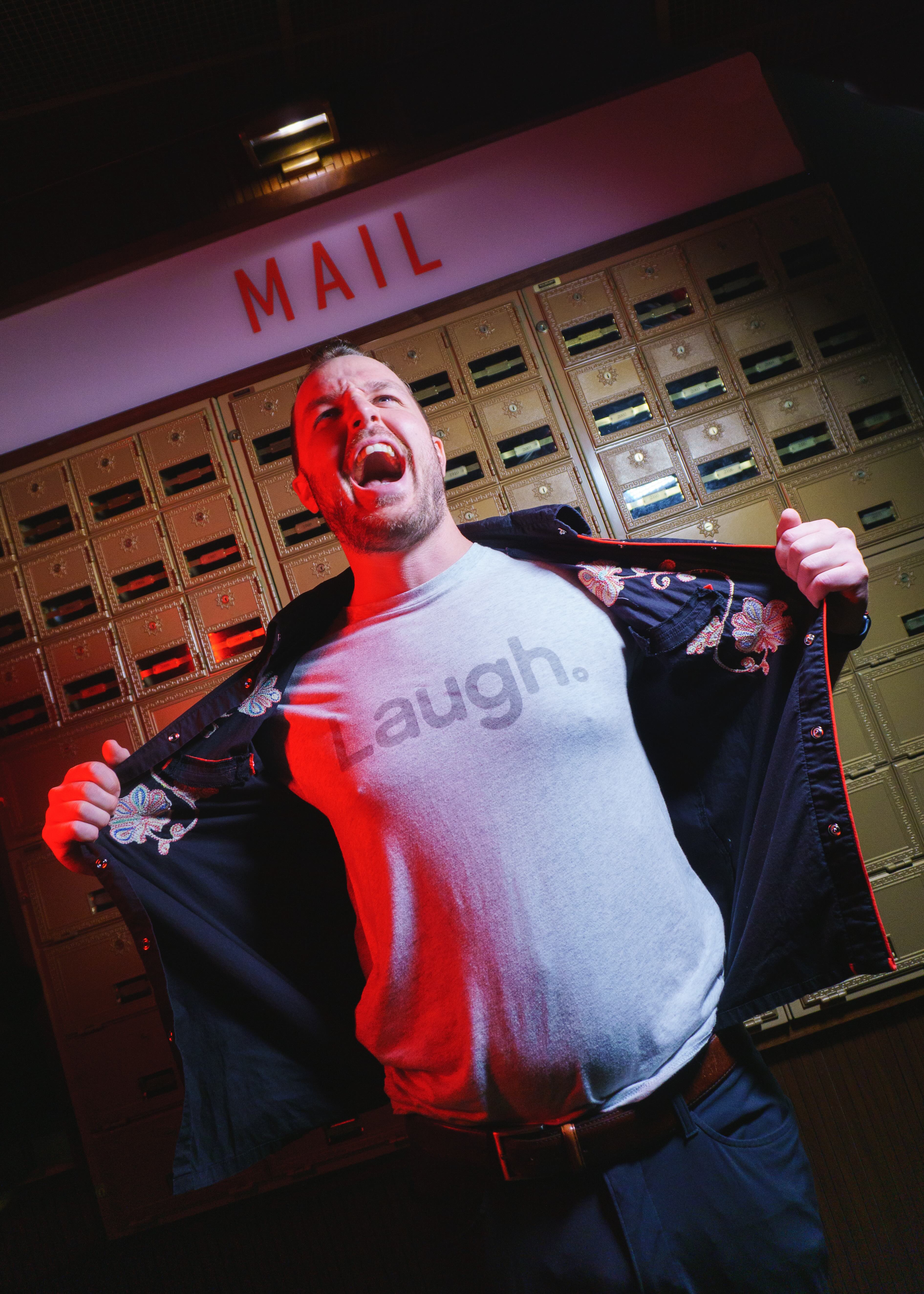
Founder
Kevin Hubschmann is a comedian, entrepreneur, and business professional who founded Laugh Dot Inc., home to Laugh. Events and the Laugh.Rx newsletter. He blends comedy, improv, and behavioral science to help professionals build creativity, confidence, and connection at work. Through hundreds of live and virtual events, Kevin demonstrates that comedy skills—such as listening, adaptability, and presence—are professional superpowers.
